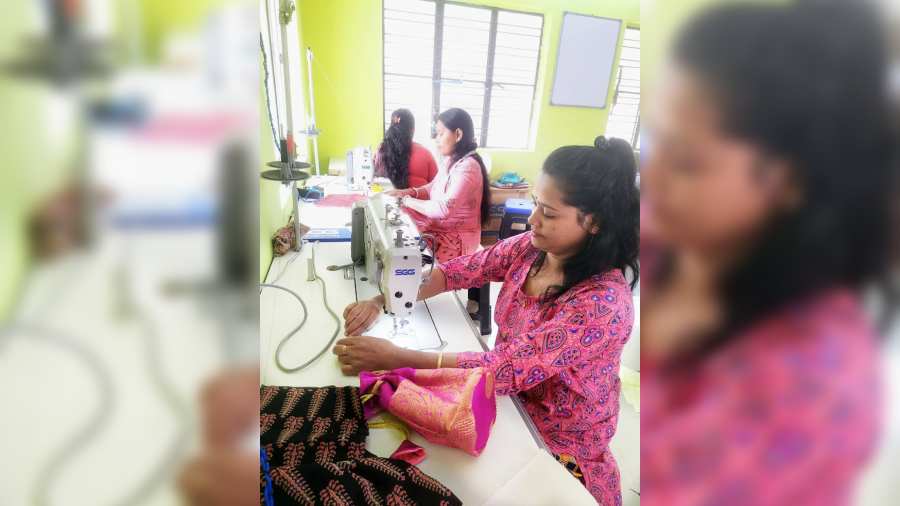A group of women trained in tailoring and embroidery have formed a self-help group (SHG) so they can support themselves round the year and take a step towards economic independence.
The women are being encouraged by Calcutta Social Project, an NGO, that has trained them so that they learn to fend for themselves.
Calcutta Social Project has trained these women, most of whom struggle financially and are tied down with family responsibilities, under its craft centre.
The NGO feels it is necessary to teach the women to be on their own instead of depending on one or two fairs that the NGO organises in a year.
Seven of the women have formed an SHG. For a start they have made a small investment on their own to prepare items for an upcoming fair.
Mousumi Mondal, 19, goes to college in the morning and makes sling bags and pouches in the evening.
“My father has been paralysed for the last five years. My mother is a domestic help. If I can earn, I can at least buy things I need for myself. It would ease the pressure on my mother,” said the second-year student.
For Sumitra Mondal, who had to quit her studies in the second year of college, stitching seems to be her only way to earn a living.
“How else can I be independent? I do not have the qualification to get a job,” said Sumitra, mother of a 10-year-old.
“I have put my son in an English medium school for which expenses are high.”
The NGO has several centres where the women are taught stitching. Over the years the NGO has realisedthat these women have family responsibilities that make it difficult for them to travel far.
But Calcutta Social Project does not want them to be under their wings forever.
“We have encouraged them to form these groups so that they can work and find a market locally. We want them to be on their own and simultaneously create an accessible workforce that our craft centre can use during their annual exhibitions,” said the president of Calcutta Social Project, Arjun Dutta.
The head of the craft centre, Barsha Mukherjee, feels that more work and more practice would make these women market ready.
“They have to match the market standards when it comes to quality and finish. Gone are the days when people would buy from NGOs out of charity. People expect standard products and once they are able to provide that their market will grow,” said Mukherjee.
